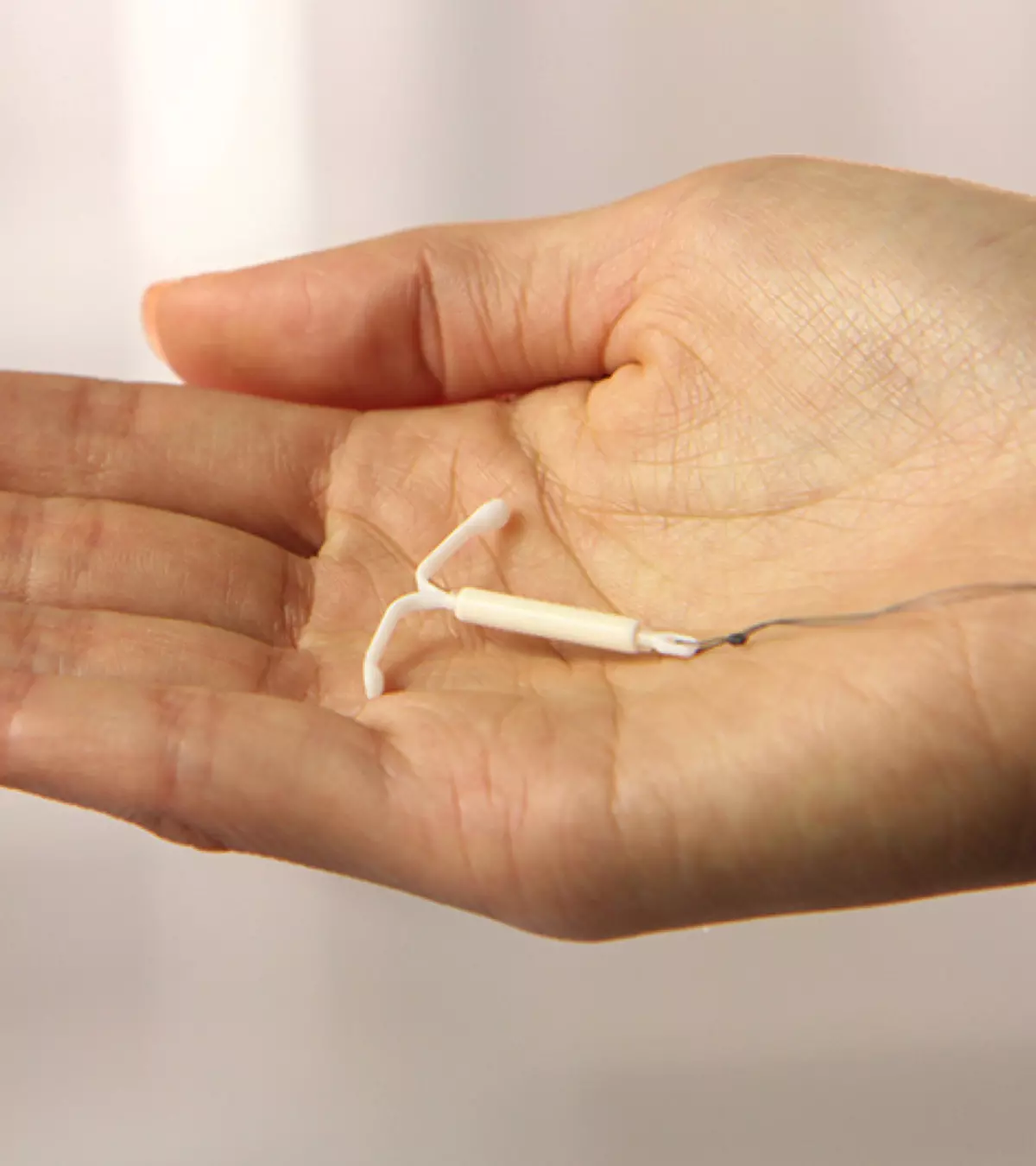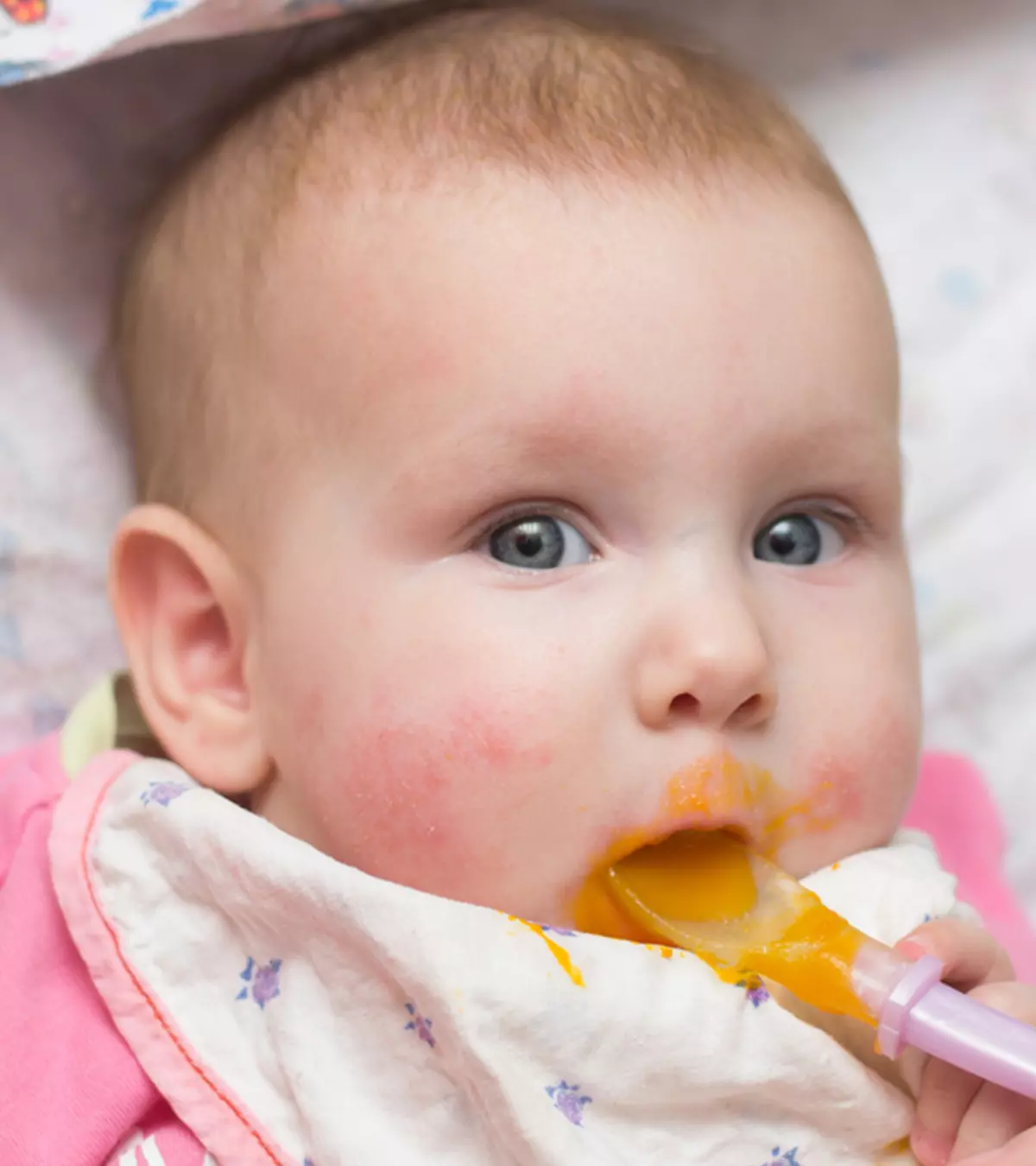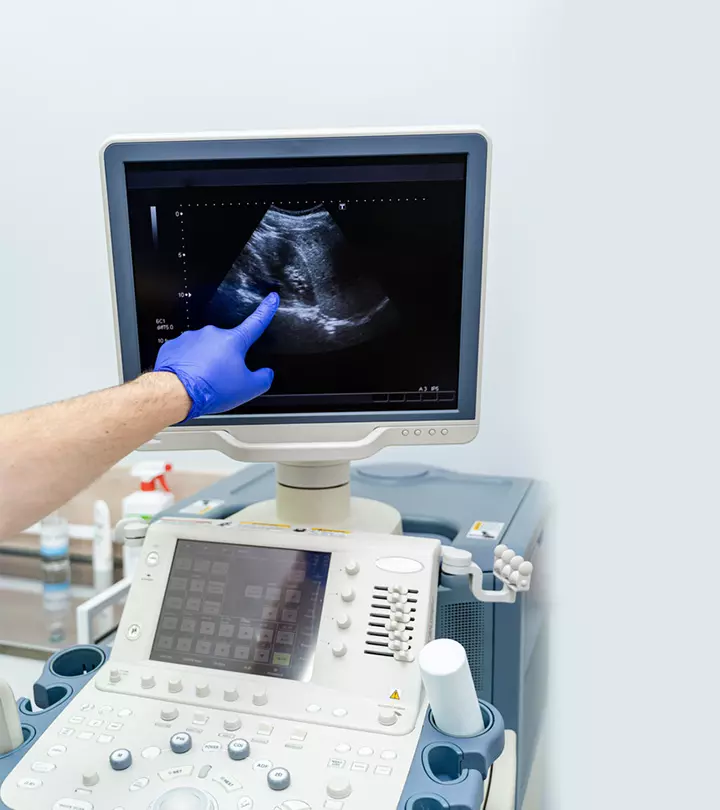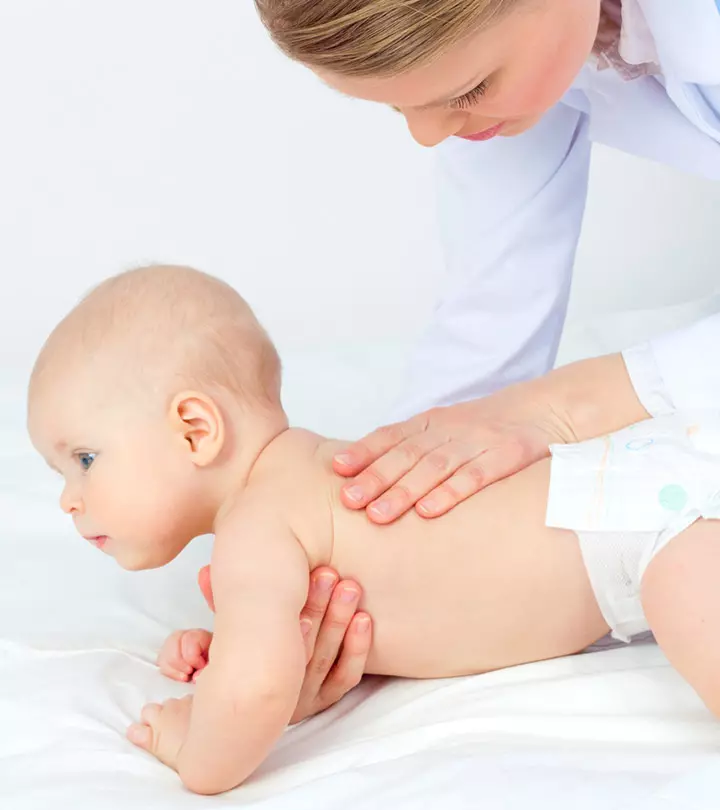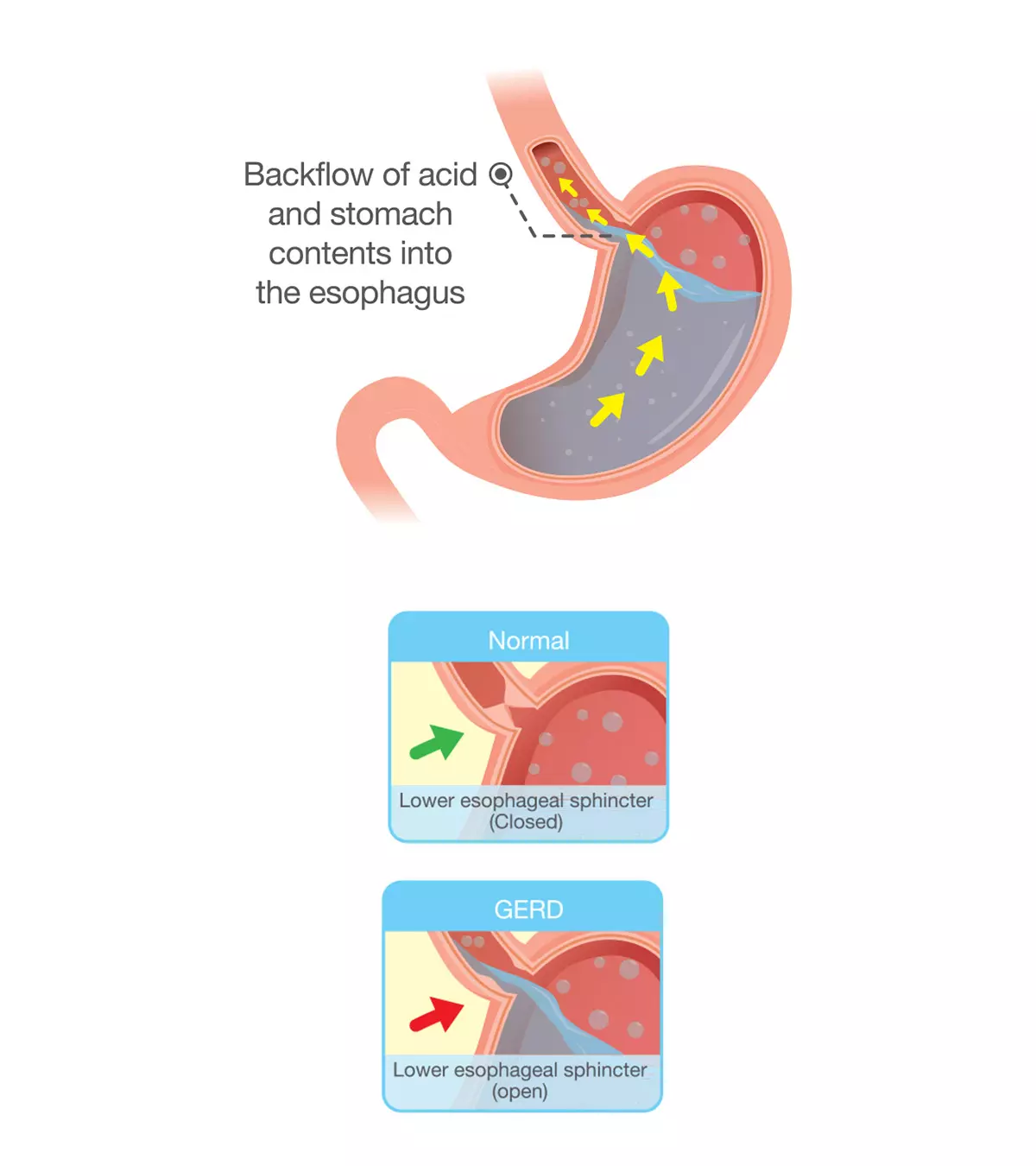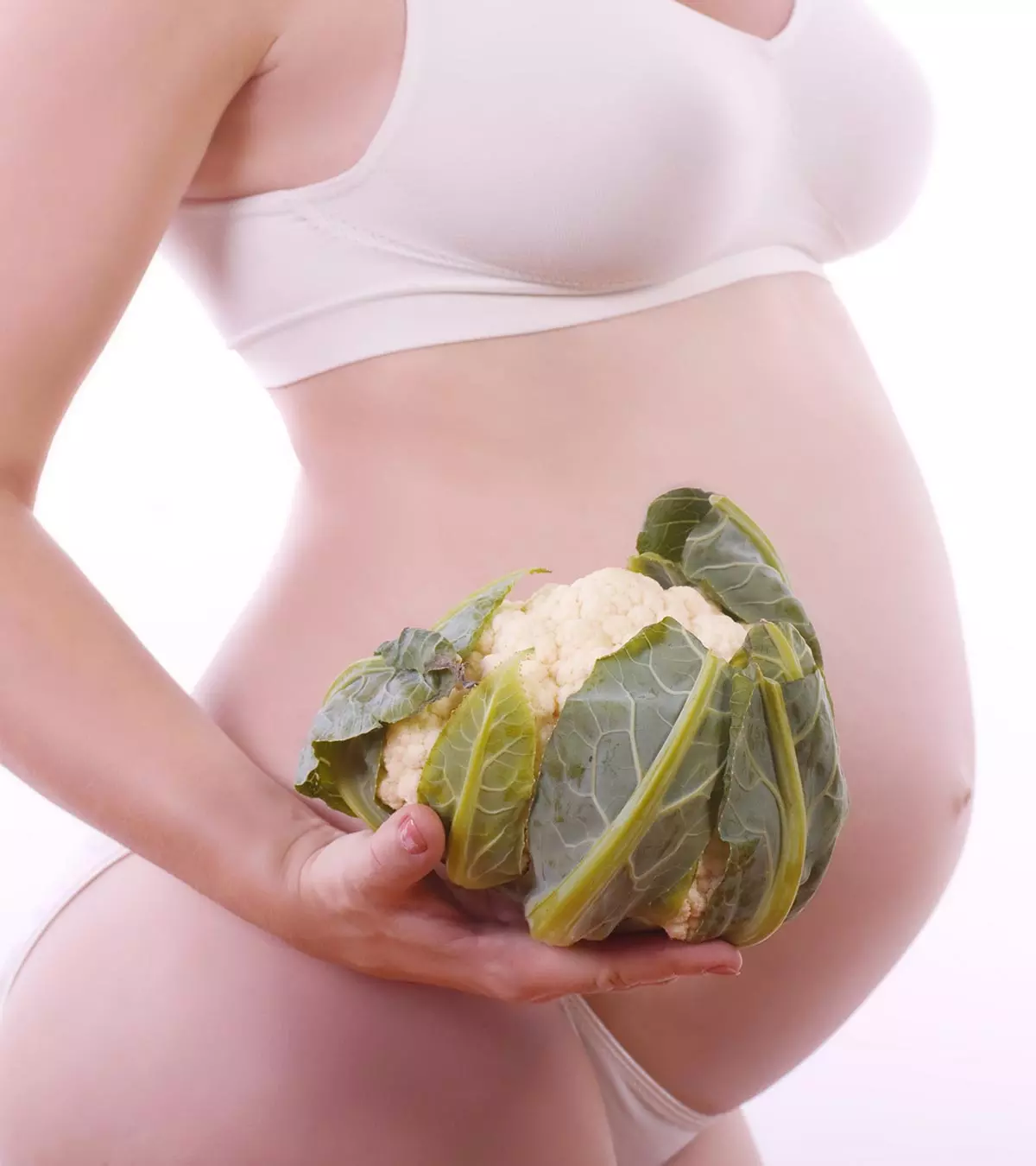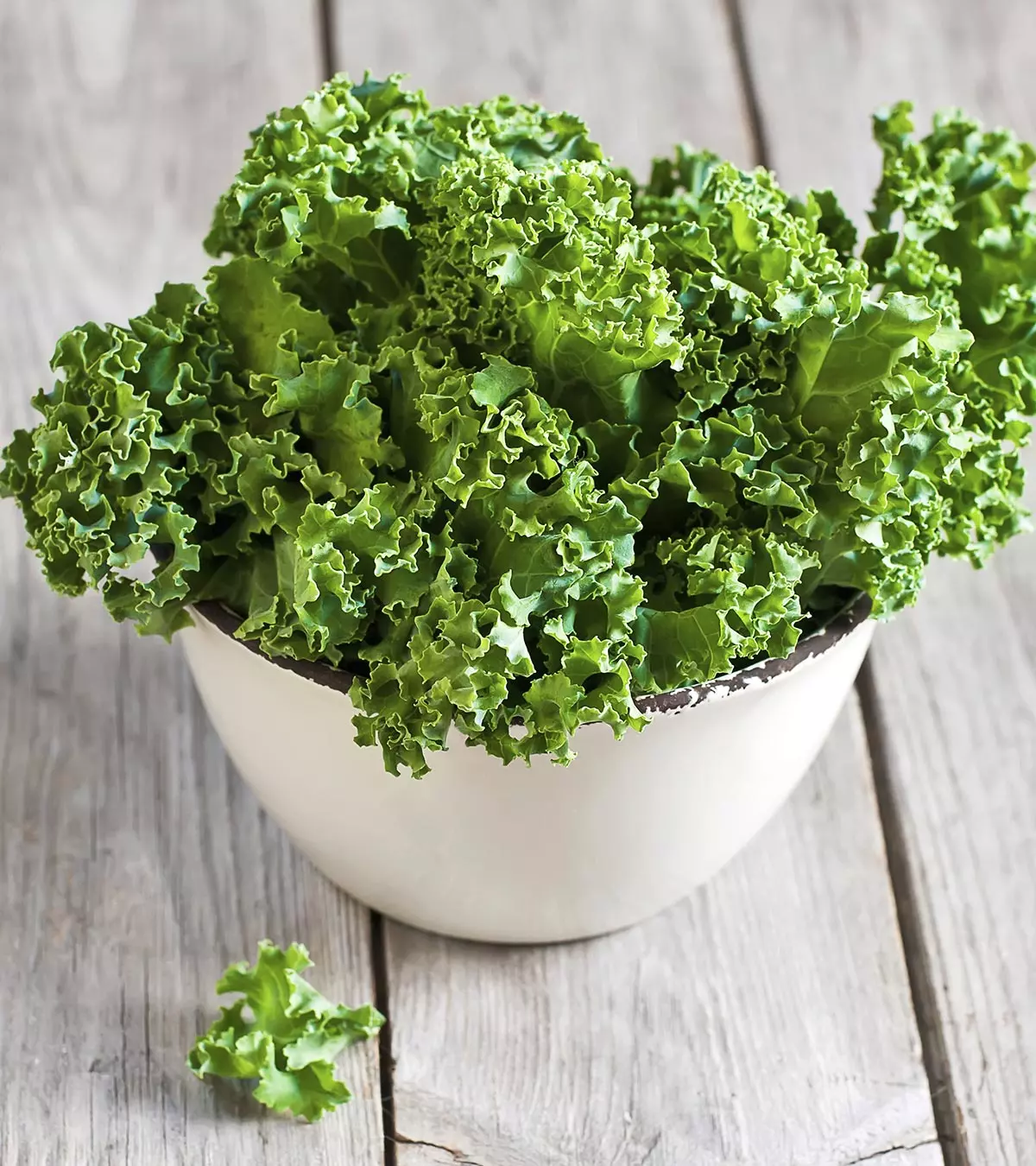
Image: ShutterStock
Kale is a nutritious leafy vegetable loaded with fiber, vitamins, and calcium (1). Green vegetables are an essential part of any pregnancy diet. But is kale good for pregnancy? Nutritional needs of the body increase during pregnancy to cater to the requirements of both the mother and baby. Thus, incorporating nutrient-enriched foods like kale during pregnancy can help improve maternal health and fetal development.
You can enjoy the benefits of this dark green leafy vegetable by eating it the way you like. Kale is known by different names worldwide, such as ‘Borecole’ in Dutch, ‘Kohl’ in German, and ‘Kail’ in Scottish Gaelic. Read this post to know about the different types of kale and its nutritional value during pregnancy.
Key Pointers
- Kale is enriched with essential nutrients like fiber, vitamins, and calcium that are required during pregnancy.
- It can be eaten raw in salads, cooked, semi-cooked, boiled, or fried.
- There are three common variants of Kale ─ Curly (greens), Lacinato (black) or Siberian (red).
- It is a rich source of Vitamin K for pregnant women to help keep their blood vessels strong during pregnancy.
Enjoying Kale
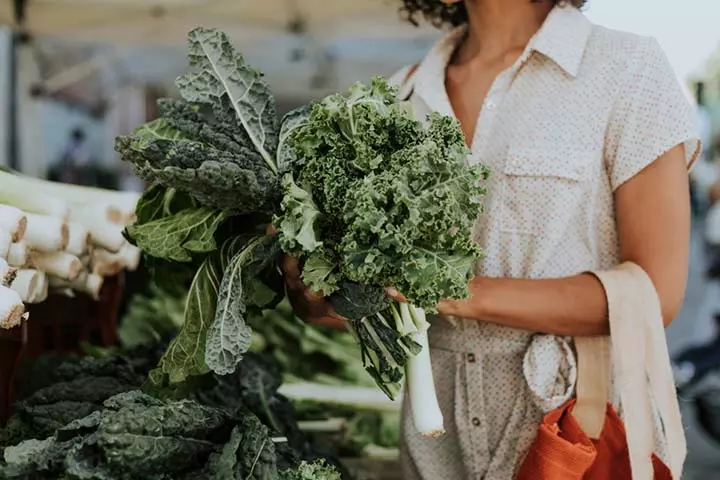
Image: Shutterstock
When cooked, kale tends to smell like sulfur, which is non-appealing for some mothers (2). However, if you can stand the odor, incorporate this vegetable into your meal for a healthy diet. It will give energy to you and your baby’s body.
- Kale can be eaten in different ways. Cooked, semi boiled or eaten as raw leaves added to salads, this vegetable becomes one of the must-haves in the maternal diet.
- Kale comes available in bunches, mostly in the cold weather months. However, most grocery stores have this vegetable all through the year.
- Kale is also known as a pregnancy super food the world over because of the above reasons.
Types Of Kale
Kale can be Curly (greens), Lacinato (black) or Siberian (red) (3). The types of kale used in different recipes depend heavily on their texture and presentation.
- Greens:
The green kale is great for stir fries, soups and smoothies, also baked as chips. While greens look like any other spinach, they are excellent for calorie count and taste different.
- Lacinato:
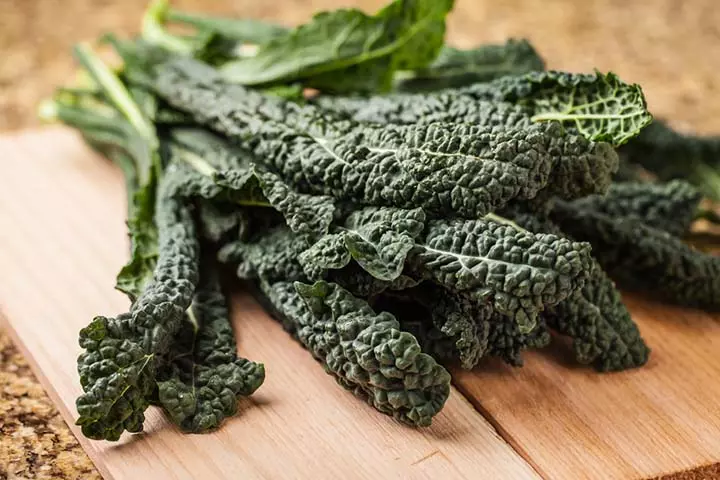
Image: Shutterstock
The black or Tuscan kale comes with bumpy leaves having a rougher texture and meatier flavor as compared to greens. This is an ideal variant for salads and sautéed versions.
- Siberian Or Russian:
This variety of kale comes with purplish veins and thinner leaves, ideal again for soups and fries.
You can choose your own variety based on how you want to add the low calorie vegetable to your diet. You may also want to invent new recipes based on how each type tastes!
Nutritional Value And Benefits Of Kale During Pregnancy
Below are the nutrients that come rich in kale along with their benefits:
1. Fiber:
Kale comes packed with fiber content ideal for smooth digestion and added roughage. The fiber present in the vegetable also prevents conditions like constipation, keeping your pelvic area relieved from stomach issues (4).
2. Calcium:
The rich calcium component in kale helps build stronger bones for your growing baby. This is an important prenatal requirement that is usually given in the form of supplements by your doctor. Adding kale would be a bonus (5).
3. Vitamin A:

Image: Shutterstock
Vitamin A content in kale builds a stronger immune system, both for you as well as your baby. This is an important foundation factor in the prenatal stage for the development of the immune system in your baby.
4. Vitamin C:
The rich vitamin C content in kale nourishes and protects the baby inside while giving you added energy and vitality. The nutrient may also help reduce the risk of developing common ailments, such as cough and cold.
5. Vitamin K:
This is the best part about eating kale. The vitamin K percentage present in this green is more than all other peers in the leafy family. Vitamin K helps keep the blood vessels strong during pregnancy, when the added blood flow becomes a crucial part in your uterine area (6).
 Point to consider
Point to considerFrequently Asked Questions
1. Can I eat raw kale during pregnancy?
Kale is a nutritious vegetable primarily consumed raw in salads and toppings. Before you consume raw kale, thoroughly wash and clean it. Remember, eating unwashed, raw vegetables during pregnancy can expose you and your baby to the risk of food-borne illnesses.
2. Is spinach or kale better for pregnancy?
Spinach and kale are highly nutritious vegetables recommended in pregnancy. Spinach is iron-rich, contains more calcium, fiber, protein, and vitamin A than kale. In comparison, kale is richer in vitamin C, K and heart-healthy flavonoids. Thus both offer several nutrients, and you may choose either or both (7) (8).
3. Is kale healthier raw or cooked?
Cooking kale may slightly decrease its minerals, vitamin C, and antioxidants. Therefore you can try steaming the vegetable to retain the nutrients (9). However, whether you consume kale raw, cooked, steamed, or in other dishes, consume kale in moderation.
4. What greens to avoid during pregnancy?
The majority of green leafy vegetables are safe to eat when pregnant. However, raw sprouts such as mung beans, alfalfa, raw broccoli, and clover should be avoided, as they may contain pathogenic bacteria, risking infection (13).
5. Which is better for me: kale or broccoli during pregnancy?
Kale and broccoli have a good amount of folate, iron, and calcium. They also have high amounts of dietary fiber that can help combat constipation, which is normal during pregnancy. Hence, consuming kale and broccoli in pregnancy is considered beneficial (14) (15).
Knowing if and how kale is good for pregnancy is one of many questions you may have regarding your pregnancy diet. Kale is a dark leafy green vegetable that provides fiber, calcium, and vitamins, and so, it could be an excellent and healthful addition to your pregnancy diet plan. Kale are of different types and are found in different parts of the world with different names. Aside from the usual salads and soups, you might try preparing a spinach-like kale dip to serve with a snack, or you may mix it with other tasty homemade dishes.
Infographic: Advantages Of Consuming Kale During Pregnancy
Kale is a powerhouse of various vitamins and minerals, such as vitamins A and C, calcium, and iron. Consuming kale during pregnancy is a healthy choice because this leafy vegetable is loaded with all the crucial nutrients that support both the mother and baby. Check out the key benefits of kale in the infographic below.
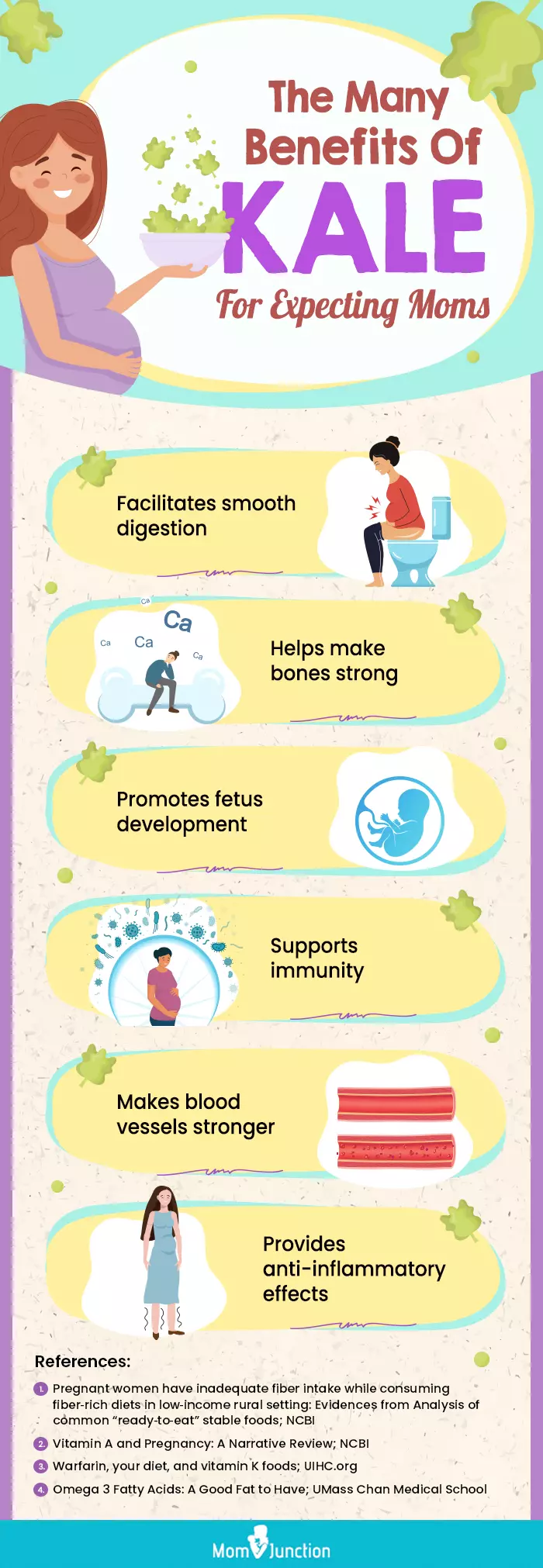
Illustration: Momjunction Design Team
Illustration: Nutritional Benefits Of Kale During Pregnancy
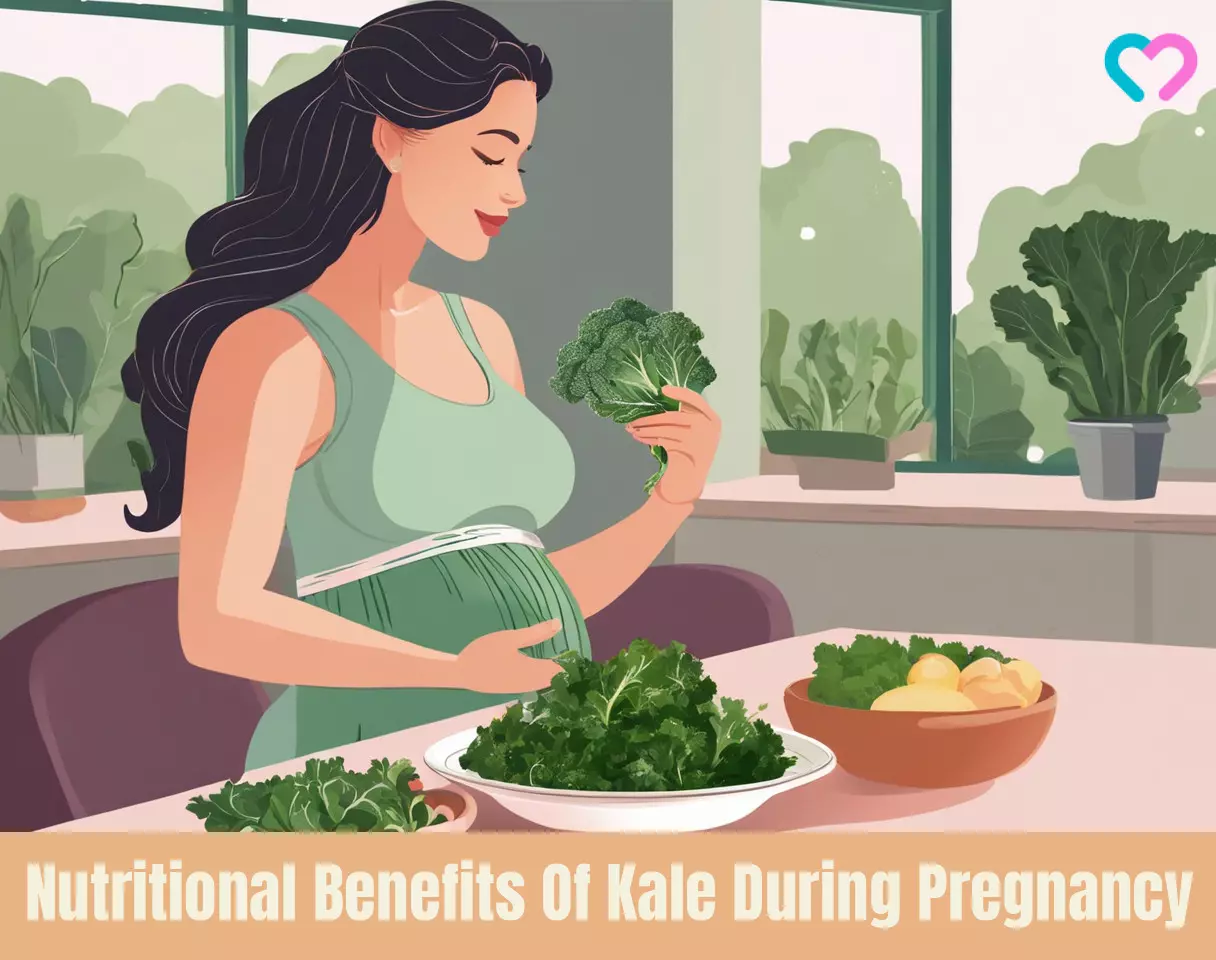
Image: Stable Diffusion/MomJunction Design Team
Kale is a superfood packed with health benefits. Learn why you should eat it, when to avoid it, and 7 reasons why it’s so good for you!
References
- Kale, raw
https://fdc.nal.usda.gov/fdc-app.html#/food-details/323505/nutrients - Kale Carotenoids Remain Stable while Flavor Compounds Respond to Changes in Sulfur Fertility
https://pubs.acs.org/doi/abs/10.1021/jf034098n - Different Shades of Kale—Approaches to Analyze Kale Variety Interrelations
https://www.ncbi.nlm.nih.gov/pmc/articles/PMC8872201/ - The Health Benefits of Dietary Fiber
https://www.ncbi.nlm.nih.gov/pmc/articles/PMC7589116/ - Calcium
https://ods.od.nih.gov/factsheets/Calcium-HealthProfessional/ - Vitamin K
https://ods.od.nih.gov/factsheets/VitaminC-HealthProfessional/ - Spinach, raw
https://fdc.nal.usda.gov/fdc-app.html#/food-details/168462/nutrients - Kale vs Spinach: Which is heart healthier.
https://health.clevelandclinic.org/kale-vs-spinach-which-is-heart-healthier - Kale benefits and nutrition facts.
https://lettuceinfo.org/kale-faq/ - Kale, raw.
https://fdc.nal.usda.gov/fdc-app.html#/food-details/168421/nutrients - Vitamin C.
https://ods.od.nih.gov/factsheets/VitaminC-HealthProfessional/ - Are Anti-Nutrients Harmful?
https://nutritionsource.hsph.harvard.edu/anti-nutrients/ - Fruits, Veggies and Juices – Food Safety for Moms to Be
https://www.fda.gov/food/people-risk-foodborne-illness/fruits-veggies-and-juices-food-safety-moms-be - Kale, raw.
https://fdc.nal.usda.gov/fdc-app.html#/food-details/168421/nutrients - Broccoli, raw.
https://fdc.nal.usda.gov/fdc-app.html#/food-details/1103170/nutrients
Community Experiences
Join the conversation and become a part of our nurturing community! Share your stories, experiences, and insights to connect with fellow parents.
Read full bio of Gabrielle Kane
Read full bio of Rebecca Malachi
Read full bio of Swati Patwal
Read full bio of Dr. Joyani Das






 Quick fact
Quick fact




